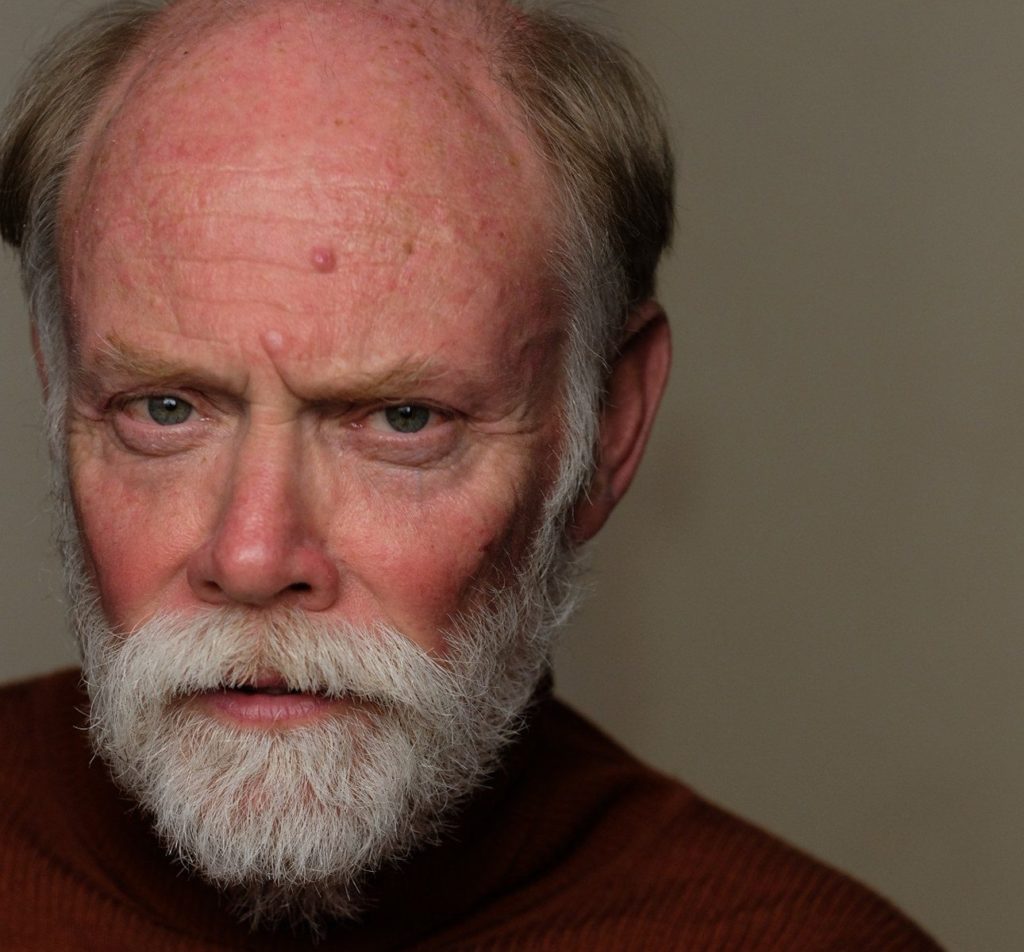You can watch the video of this interview, or listen to the audio as a podcast below.
Richard Speir interviews Robin Hooper about Broken Lad, coming soon to Arcola Outside.
Robin Hooper is a prolific and lauded playwright (Queer Fish, Battersea Arts Centre – Critics Choice, Time Out, Whats On), who returns to Arcola following Not the Love I Cry For (2006). This world premiere is directed by Richard Speir whose previous work at Arcola includes Gentlemen (2020) and Spun (2018).
Richard Speir (RS): Alright Robin, five minutes, so tell us what Broken Lad is about.
Robin Hooper (RH): I think it’s fundamentally about a crisis of masculinity. A feeling of men being disoriented and not sure how to proceed with their lives at a certain point in their mid fifties.
RS: There’s also these really fantastic female roles in the play as well. Why did you feel it was especially important that came across?
RH: I was interested in how women – the wives of these men, the daughters and children of these men – how they handle it when middle-aged men are losing their way emotionally, psychologically and to some extent physically with their health deteriorating.
RS: With these middle-aged men losing their way, do you mean as they grow older or also perhaps in society and how we view masculinity now?
RH: A certain kind of redundancy sets in, especially now, about men of a certain age being past it professionally, the taste for younger talent and younger energy. I chose stand up because I think it is a profession where that kind of prejudice functions. You know they want young talent rising and being seen on television and all over the place.
RS: So the stand-up world is where a lot of the comedy comes from?
RH: I hope so! I’ve worked with stand-ups when they’ve been acting in plays. It seemed to me to be a useful metaphor for what the play is about. Exposing oneself, the vulnerability to some extent, exposing the pain. I learned in my research that stand-ups basically wish to talk about things that really upset them, and lo and behold they discover that it upsets other people as well.
RS: In the play, there’s a father-son dynamic which is crucial to the story and the son has got this new brand of comedy. What was behind this father-son dynamic?
RH: Rivalry. I do have one or two close friends who have sons who are following in their father’s footsteps and I’ve talked to them about the rivalry. I mean I know something about sibling rivalry because I have a brother in the same profession, but this is the idea that a father has to watch his son do what he did and then watch him do better. It’s a struggle.
RS: One of the other characters Ned, a friend of Phil and the family, he’s still enjoying an active sex life in his middle age. That’s something that I didn’t feel I’d come across much n plays. Would you say that was fair?
RH: Well, I’m 72 – and not being too rude or too specific – but I think I still have something of a sexual life and I just wanted to put that out there a little bit. I certainly wanted it out there that for men of any older age, whatever their sexuality, it doesn’t necessarily stop. You know that there is a future out there for it, but you have to look for it.
RS. With this family, Ned is a friend, and he kind of comes across as the least dysfunctional of all of them. This family seems to operate on a sort of helter skelter mode all the time. What is important about dysfunctionality in families to Broken Lad?
RH: The best plays or hopefully the plays that stick around for a long time are dealing with the family that’s breaking up, the family that’s losing its way, the family there has to move on. I really wanted to look at that. I don’t often go there with my plays so I was concerned that I should investigate that really. Somebody like Ned, the single gay man who has probably lost most of his family, who somehow attaches himself to a family in order to gain some solace, comfort, and identity. Feeling like “I’m a part of this family, I’ve been a member of this family for a long time.” It’s about understanding that that’s important actually.
RS: So play has been a while in the making and it’s going to be in Arcola Outside…
RH: We’re doing it in an extraordinary tent that has its own bar and we experience the street life outside coming in through the sound obviously which is rather like performing in a pub when you can hear the street outside. It is a venue that has the most wonderful dynamic to it. It’s very very exciting. It certainly reminds me of what I read about Elizabethan court theatres, being outside and experiencing something that is amazingly energetic. And, being Dalston which is an extremely vibrant place, it absolutely belongs there.
Broken Lad opens on 13 October, part of Today I’m Wiser.


